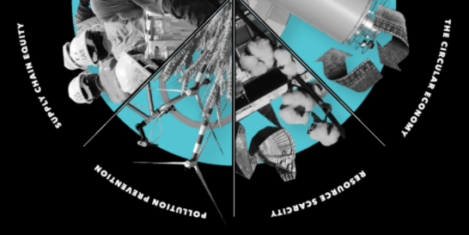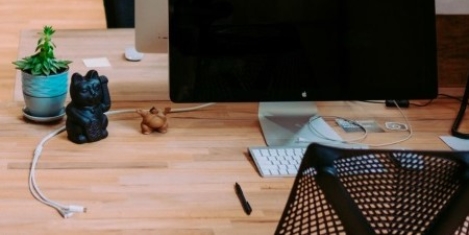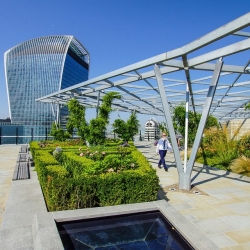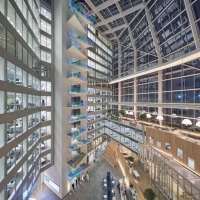To provide the best experiences, we use technologies like cookies to store and/or access device information. Consenting to these technologies will allow us to process data such as browsing behaviour or unique IDs on this site. Not consenting or withdrawing consent, may adversely affect certain features and functions.
The technical storage or access is strictly necessary for the legitimate purpose of enabling the use of a specific service explicitly requested by the subscriber or user, or for the sole purpose of carrying out the transmission of a communication over an electronic communications network.
The technical storage or access is necessary for the legitimate purpose of storing preferences that are not requested by the subscriber or user.
The technical storage or access that is used exclusively for statistical purposes.
The technical storage or access that is used exclusively for anonymous statistical purposes. Without a subpoena, voluntary compliance on the part of your Internet Service Provider, or additional records from a third party, information stored or retrieved for this purpose alone cannot usually be used to identify you.
The technical storage or access is required to create user profiles to send advertising, or to track the user on a website or across several websites for similar marketing purposes.
 Dr Leyla Acaroglu, and intranet provider, Unily, have launched the Future of Workplace Sustainability Report, which explores how sustainability, climate change and COVID-19 are shaping the future of the workplace. We are living in a time of great and immediate change, and COVID-19 and climate change are just two of the most obvious forces impacting our way of life. (more…)
Dr Leyla Acaroglu, and intranet provider, Unily, have launched the Future of Workplace Sustainability Report, which explores how sustainability, climate change and COVID-19 are shaping the future of the workplace. We are living in a time of great and immediate change, and COVID-19 and climate change are just two of the most obvious forces impacting our way of life. (more…)








 As many of us cope with yet another lockdown, optimism is easy to misplace but, for disabled workers, this could result in monumental change for future employment. On the month commencing the 25th anniversary of the Disability Discrimination Act and the run-up to International Day of Disabled Persons, could this be the final push for change? As we swing in and out of remote-working, whether you love it or loathe it, one thing is abundantly clear – it can be done. Something that the
As many of us cope with yet another lockdown, optimism is easy to misplace but, for disabled workers, this could result in monumental change for future employment. On the month commencing the 25th anniversary of the Disability Discrimination Act and the run-up to International Day of Disabled Persons, could this be the final push for change? As we swing in and out of remote-working, whether you love it or loathe it, one thing is abundantly clear – it can be done. Something that the 
 With a new national lockdown, the situation in the UK remains unpredictable and complicated, and renewed pressure to work from home has forced many organisations to reverse their back-to-work plans, according to a new study from
With a new national lockdown, the situation in the UK remains unpredictable and complicated, and renewed pressure to work from home has forced many organisations to reverse their back-to-work plans, according to a new study from 
 New research from
New research from 
 Unused office space after coronavirus could cost London-based businesses almost £13 billion according to a new report by
Unused office space after coronavirus could cost London-based businesses almost £13 billion according to a new report by 
 The construction sector, the real estate industry and city planners must give high priority to the same goal – to drastically reduce their climate impacts. Powerful, combined efforts across all of the built environment sectors are absolutely crucial for the potential to achieve the UN’s sustainability goals. And what’s more – everything has to happen very quickly. These are the cornerstones to a roadmap presented at the recent
The construction sector, the real estate industry and city planners must give high priority to the same goal – to drastically reduce their climate impacts. Powerful, combined efforts across all of the built environment sectors are absolutely crucial for the potential to achieve the UN’s sustainability goals. And what’s more – everything has to happen very quickly. These are the cornerstones to a roadmap presented at the recent 
 The pandemic has totally shattered workplace norms, so it’s going to take a while before we see organizations returning to work at full capacity. When it does happen, it will require extensive planning and constantly evolving styles of people management. In addition to the logistics of phasing people back into the office and staggering shifts, you’ll need to work with your team to address their anxieties and make sure they feel comfortable in their environment.
The pandemic has totally shattered workplace norms, so it’s going to take a while before we see organizations returning to work at full capacity. When it does happen, it will require extensive planning and constantly evolving styles of people management. In addition to the logistics of phasing people back into the office and staggering shifts, you’ll need to work with your team to address their anxieties and make sure they feel comfortable in their environment. 
 Nearly half of respondents in a global survey reported stronger occupier and investor demand for commercial properties with green building certificates. This translates into higher rents according to the
Nearly half of respondents in a global survey reported stronger occupier and investor demand for commercial properties with green building certificates. This translates into higher rents according to the 














November 20, 2020
HR professionals must seek a new connection with the IT team
by Joseph Morley • Comment, Technology